Indigenous Cultural Awareness
Learning opportunities and training listed include:
- Courses
- Films, Podcasts & Reading Materials
- Activities & Workshops
- Community Events
- and Other Opportunities
Please see the Indigenous cultural awareness content below, which is available on behalf of the College for the purpose of learning.
Note, this is not an exhaustive list, and it may change occasionally. Please be sure to check back periodically for new available options.
If you would like to do an Indigenous cultural awareness activity that is not listed below, please consult with your manager to ensure it is an appropriate activity. Examples of unacceptable activities are travelling to Moosonee campus for work, or wearing an orange shirt. The activity should involve learning about Indigenous culture and history (food, clothing, ceremony, traditions, medicines, language, artifacts, treaties, etc.).
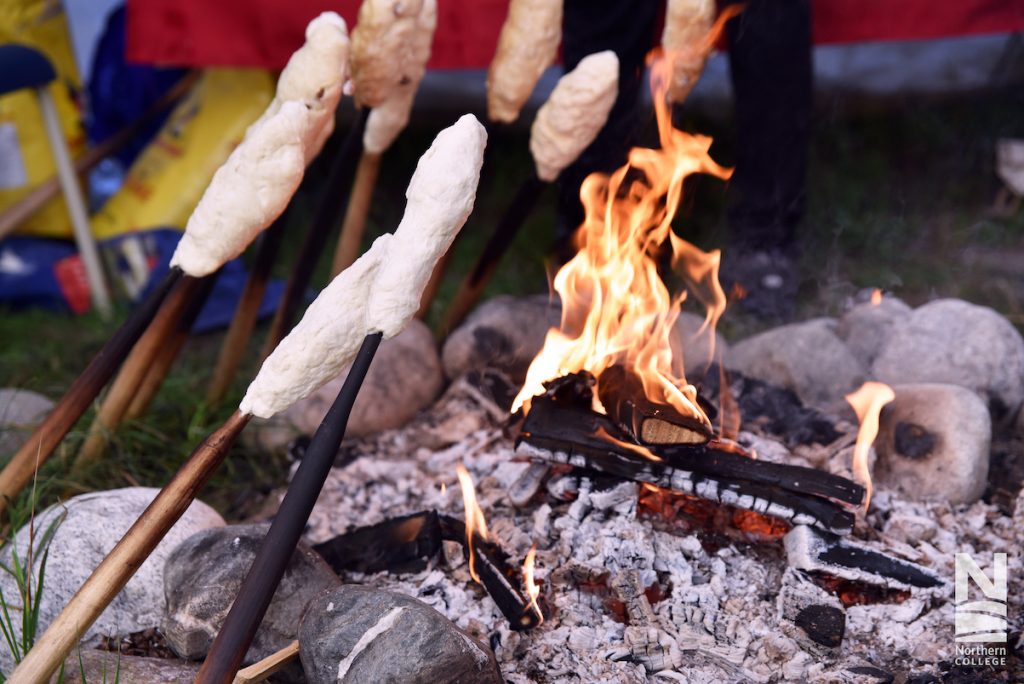
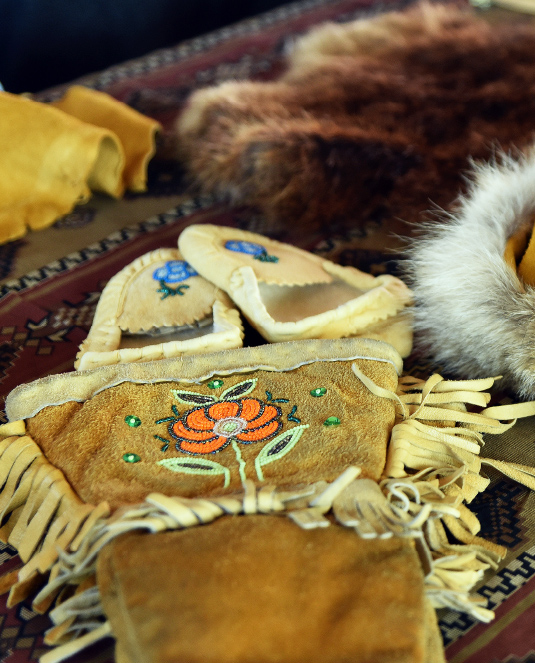
Content Warning
Some of the cultural awareness content below may include stories, history, and facts of a sensitive and/or traumatic nature that may trigger individuals.
Please ensure that you have identified the appropriate supports available to assist you prior to accessing content.
Supports
Please ensure that you have identified the appropriate supports available to assist you prior to accessing content.
If you require more specific information about content prior to accessing, please contact the Human Resource Services Department.
Employees can access mental health supports through our Employee & Family Assistance Program.
Student can access supports through our Mental Health Advising services.
In case of crisis, you may also call 9-8-8 (similar to calling 9-1-1), a crisis helpline available 24 hours a day, offering trauma informed culturally appropriate support from trained responders.
In addition, Indigenous people may access the following resources:
- Hope for Wellness Helpline.
- NAN Hope (Nishnawbe Aski Mental Health and Addictions Support Program)
These organizations in our community may also provide health and wellness services to Indigenous peoples:
The information in the video, podcast, website, or book content below represents the views and opinions of the original creators of such content and does not necessarily represent the views or opinions of Northern College. The content has been provided for informational and educational purposes only.
While we make every effort to ensure that the information shared is accurate, we welcome any comments, suggestions, or correction of errors by contacting hr@northern.on.ca.
Courses
Ontario Health – Indigenous Relationship and Cultural Awareness Courses
These 13 Indigenous Relationship and Cultural Awareness courses are designed to empower those working with First Nations, Inuit and Métis people with the knowledge needed to provide culturally appropriate, person-centred care. The information is relevant to all Canadians, as the courses promote greater awareness of First Nation, Inuit and Métis history, culture and the health landscape. The courses are designed for self-paced learning. They are available to anyone, free of charge. Access the courses at https://elearning.ontariohealth.ca/course/index.php?categoryid=20
Indigenous Canada
Indigenous Canada is a 12-lesson open online course from the Faculty of Native Studies that explores the different histories and contemporary perspectives of Indigenous peoples living in Canada. Learn more at https://www.coursera.org/learn/indigenous-canada.
Films, Podcasts & Reading
Films & Videos
Trick or Treaty? – Covering a vast swath of northern Ontario, Treaty No. 9 reflects the often contradictory interpretations of treaties between First Nations and the Crown. To the Canadian government, this treaty represents a surrendering of Indigenous sovereignty, while the descendants of the Cree signatories contend its original purpose to share the land and its resources has been misunderstood and not upheld. Enlightening as it is entertaining, Trick or Treaty? succinctly and powerfully portrays one community’s attempts to enforce their treaty rights and protect their lands, while also revealing the complexities of contemporary treaty agreements.
For more information and to purchase a copy, visit the National Film Board of Canada website at https://www.nfb.ca/film/trick_or_treaty/.
In this searing documentary, Indigenous people share heartbreaking stories that reveal the injustices inflicted by the Canadian child welfare system.
The documentary is available on Netflix at https://www.netflix.com/ca/title/81616321.
Dr. Jules Arita Koostachin’s deeply personal documentary unravels the tangled threads of silence suffered by residential school Survivors through truth, freedom and power.
The film can be viewed at https://www.nfb.ca/film/waapake-tomorrow/.
The Secret Path (Animated) – “The Secret Path is an animated film adaptation of Gord Downie’s album and Jeff Lemire’s graphic novel. Working with Downie’s poetry and music, Lemire has created a powerful visual representation of the life of Chanie Wenjack. The film is divided into ten chapters, each a song from Downie’s musical retelling of Chanie’s story – from his escape from the Cecilia Jeffrey Indian Residential School, to his subsequent and heartbreaking death from hunger and exposure to the harsh weather. The final product is a uniquely immersive emotional experience – an insight into the life of a little boy who, as Gord has said, he never knew, “but will always love.”
Gord Downie’s The Secret Path full length film is available on YouTube by CBC Arts at https://www.youtube.com/watch?v=yGd764YU9yc
Presented by the National Centre for Truth and Reconciliation.
Speakers Kathy Pompana and Dr. Maureen Lux will discuss the harms caused by the residential school system and the segregated healthcare system known as Indian Hospitals and their modern-day impacts on Indigenous health. Audience members will come away with an understanding of the link between these colonial systems and how they contributed to mistrust of the health care system. Moderated by Lauren Pelley.
The livestream recording can be viewed on YouTube at https://www.youtube.com/live/sJfnA1GAFcY.
Presented by the National Centre for Truth and Reconciliation.
Speakers Michelle Cyca and Residential School Survivor Dickie Yuzicapi will examine the issue of Indigenous identity fraud and unpack the practice of “pretendianism” and its harmful impacts. Audience members will come away with an understanding of the reach and impact of identity fraud and what can be done to address it.
The livestream recording can be viewed on YouTube at https://www.youtube.com/live/8Ehb1NbVSRs.
Podcasts
Telling Our Twisted Histories – Words connect us. Words hurt us. Indigenous histories have been twisted by centuries of colonization. Host Kaniehti:io Horn brings us together to decolonize our minds– one word, one concept, one story at a time.
Listen to the podcast on CBC Listen at https://www.cbc.ca/listen/cbc-podcasts/906-telling-our-twisted-histories.
This Place – Based on the acclaimed graphic novel anthology, This Place is a 10-part journey through one-hundred and fifty years of Indigenous resistance and resilience. Through dramatizations and interviews, along with your host and time-guide storyteller Rosanna Deerchild, the series reveals the heroes, battles, triumphs and traditions which live outside and beyond the national story we have been taught … to learn, to share, and to heal the future of “this place” we call Canada.
Listen to the podcast on CBC Listen at https://www.cbc.ca/listen/cbc-podcasts/1020-this-place.
The Secret Life of Canada – The Secret Life of Canada is a podcast about the country you know and the stories you don’t. Join hosts Leah-Simone Bowen and Falen Johnson as they reveal the beautiful, terrible and weird histories of this land.
Listen to Episode 2 of the podcast ‘The Indian Act’ on CBC Listen at https://www.cbc.ca/listen/cbc-podcasts/203/episode/15721469.
Muddied Water – Who are the Metis? It’s complicated. This podcast explores the history of Metis people in Manitoba, beginning with Louis Riel who was hero to some and traitor to others. Host Stephanie Cram unravels the intricate history of the Metis…and follows the thread from resistance to renaissance.
Listen to the podcast on CBC Listen at https://www.cbc.ca/listen/cbc-podcasts/371-muddied-water.
Reading
You may be able to request a copy to borrow from the Indigenous Services & Initiatives dept. or campus library. Please contact the Indigenous Services Administrative Assistant at 705-235-3211 ext. 7102 or visit the library on your campus to borrow a copy of one of these or another title available.
- ‘The Secret Path’ (children’s book) by Gord Downie
- ‘Braiding Sweetgrass/Braiding Sweetgrass for Young Adults’ by Robin Wall Kimmerer
- ‘There There’ by Tommy Orange
- ‘Inconvenient Indian’ by Thomas King
- ’21 Things You Didn’t Know About the Indian Act’ by Bob Joseph
- ‘Seven Fallen Feathers’ by Tanya Talaga
“Envisioned by Indigenous leaders and knowledge holders, the standards reflect and respond to the worldviews, educational needs, and priorities of diverse northern Ontario Indigenous peoples, specifically Anishinaabe, Mushkegowuk and Métis communities, on whose traditional lands the colleges reside. The standards were developed collaboratively over three years with six participating colleges – Cambrian College, Canadore College, Collège Boréal, Confederation College, Northern College and Sault College – through a project funded by the Ministry of Advanced Education and Skills Development.”
This document is available in PDF format for download or to read online in a browser at https://az184419.vo.msecnd.net/canadore-college/corporate/BuildingAStrongFire_Nov28_PrintSetup.pdf [PDF]
Truth and Reconciliation Commission of Canada: Calls to Action (Action # 16) – In order to redress the legacy of residential schools and advance the process of Canadian reconciliation, the Truth and Reconciliation Commission made calls to action.
This publication can be read online at https://publications.gc.ca/site/eng/9.801236/publication.html.
Activities & Workshops
Cultural Workshops
The Indigenous Services & Initiatives department regularly offers free workshops to employees so they learn more about Indigenous culture.
Examples of past workshops include beading a poppy for Remembrance Day or an orange t-shirt pin for the National Day for Truth & Reconciliation, making moccasins, learning about the Cree language, Seven Grandfather Teachings, and much more.
Watch for announcements from the Indigenous Services & Initiatives department about upcoming workshops.
Monthly Newsletter: Indigenous Services & Initiatives releases a monthly newsletter, by e-mail to all employees, bringing you important information about the month’s workshops and other initiatives taking place.
KAIROS Blanket Exercise
The Blanket Exercise is based on using Indigenous methodologies and the goal is to build understanding about our shared history as Indigenous and non-Indigenous peoples in Canada by walking through pre-contact, treaty-making, colonization and resistance.
Everyone is actively involved as they step onto blankets that represent the land, and into the role of First Nations, Inuit and later Métis peoples. By engaging on an emotional and intellectual level, the Blanket Exercise effectively educates and increases empathy.
Watch for announcements about upcoming opportunities to participate in this exercise on your campus or in your community
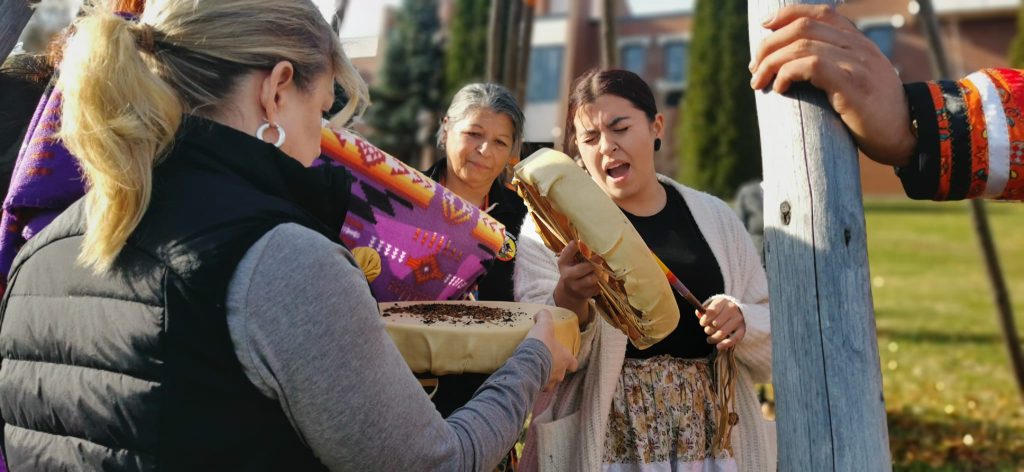
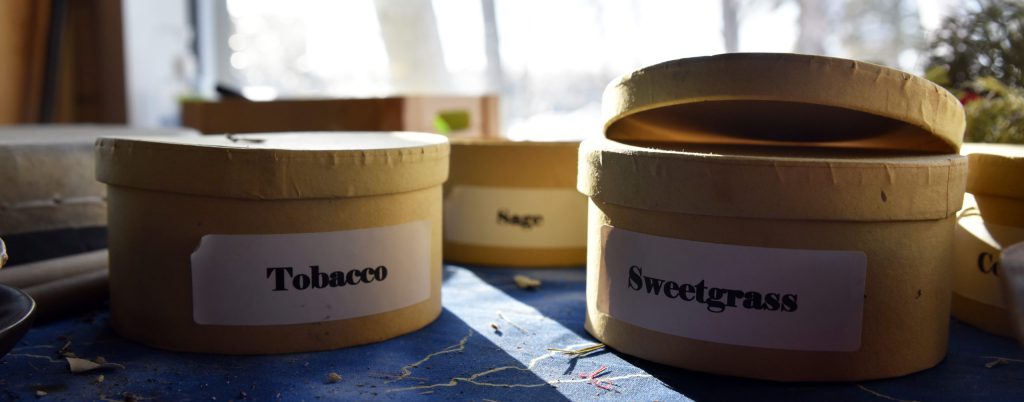
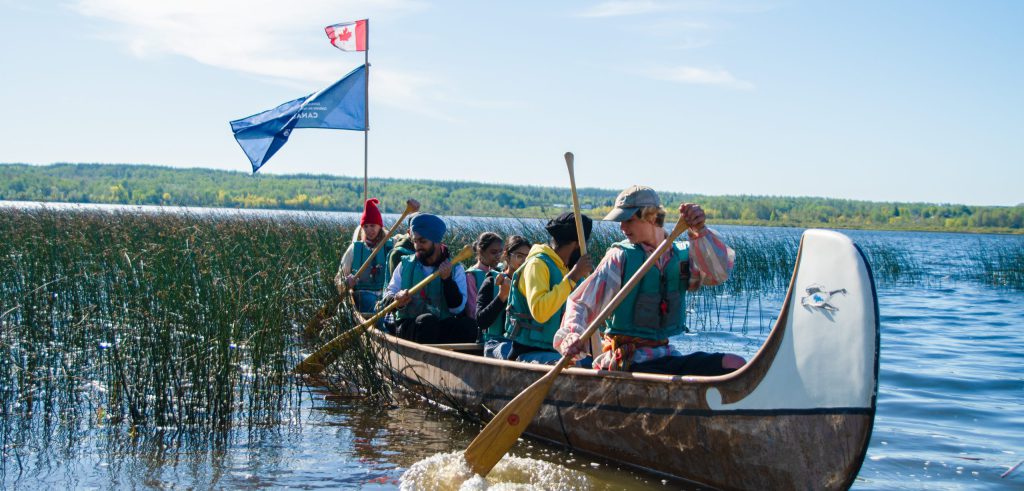
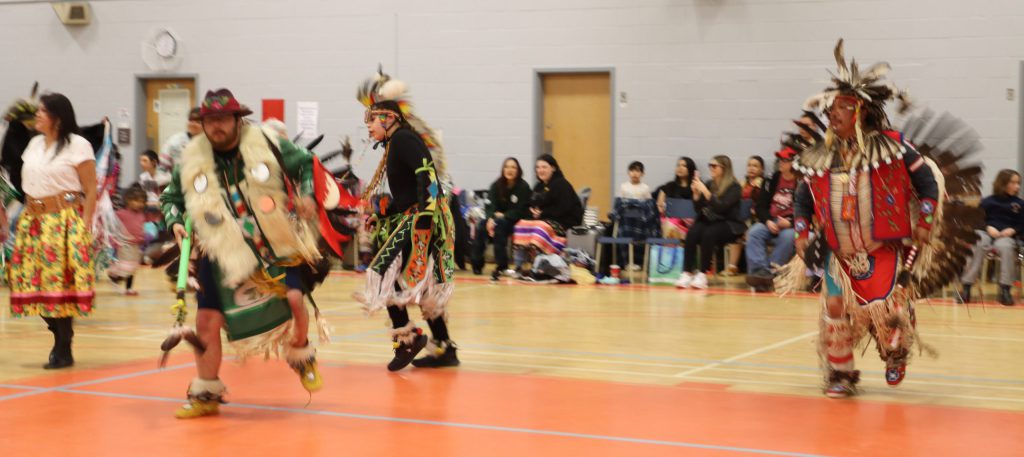
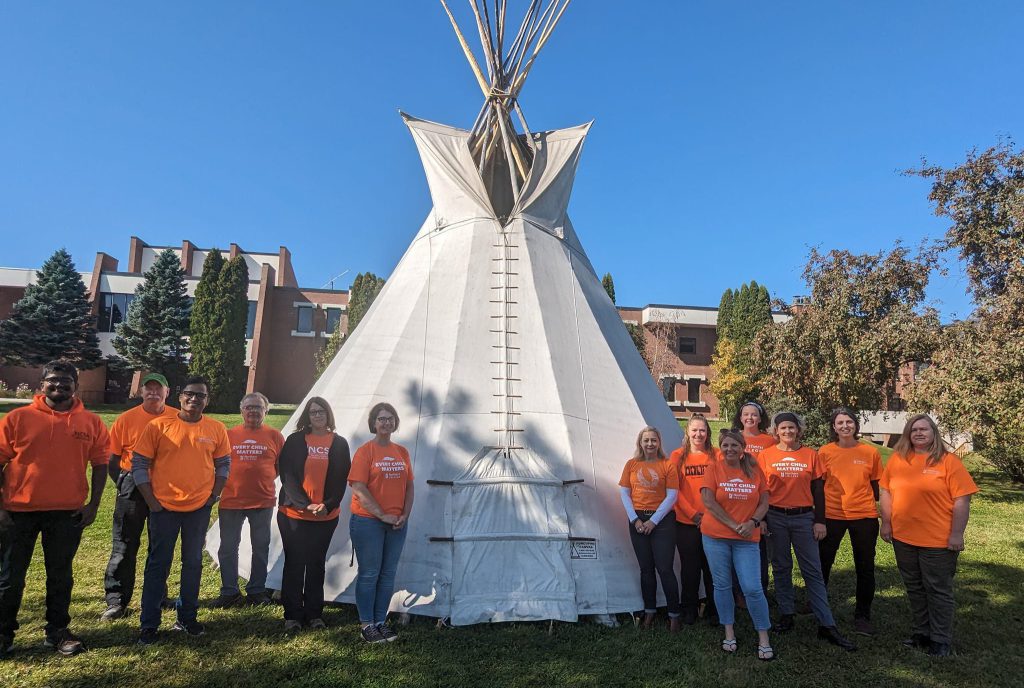
Community Events
Annual Indigenous Cultural Awareness Week
Annual Indigenous Cultural Awareness Week (ICAW) is a week-long series of events/activities that are open to all employees and students.
This week occurs during the month of September, each year and usually consists of traditional meals such as Bannock breakfast, workshops for creating Indigenous items such as dreamcatchers, cultural teachings, learning about Indigenous languages, and so much more.
Annual Powwow
A powwow is a cultural celebration showcasing drums, dance, regalia, food and crafts of Indigenous people that often takes place in the summer.
Northern College hosts a powwow each year at the Timmins Campus. All are welcome to attend and free bus transportation is offered for those who are attending from the Kirkland Lake or Haileybury campus regions. For more information, visit the Northern College Annual Traditional Powwow Facebook page.
Other powwow events take place all over Canada. For more information on other powwow events and etiquette, please visit https://canadianpowwows.ca/.
Days of Significance
First Week of November, Annually
A week that honours the importance of treaties and helps everyone to understand the significance of treaty rights, treaty relationships and their relevance today. This week occurs during the first full week in November each year.
The Indigenous Services & Initiatives Department, as well as many other organizations distribute learning materials regarding treaties during this week.
Here are some materials previously shared by various organizations:
The month of June, Annually
National Indigenous History Month in June is an opportunity to learn about the unique cultures, traditions and experiences of First Nations, Inuit and Métis. It’s a time to honour the stories, achievements and resilience of Indigenous Peoples, who have lived on this land since time immemorial and whose presence continues to impact the evolving Canada.
Watch for announcements about events happening on campus or in the community.
Annually, on June 21
National Indigenous Peoples Day on June 21st annually is when many Indigenous groups and communities celebrate their culture and heritage on June 21 or around that time of year because of the significance of the summer solstice as the longest day of the year.
Watch for announcements about events happening on campus or in the community.
National Day for Truth & Reconciliation & Orange Shirt Day is recognized on September 30 annually.
Orange Shirt Day is an Indigenous-led grassroots commemorative day intended to raise awareness of the individual, family and community inter-generational impacts of residential schools, and to promote the concept of “Every Child Matters”. The orange shirt is a symbol of the stripping away of culture, freedom and self-esteem experienced by Indigenous children over generations. This day often includes exploring the rich and diverse culture, voices, experiences and stories of Indigenous people.
On September 30, we encourage all employees to wear orange to honour the thousands of Survivors of residential schools. In addition, employees are welcome to participate in Truth & Reconciliation events taking place on campus.
National Day for Awareness of Missing & Murdered Indigenous Women and Girls (MMIWG), also known as “Red Dress Day,” is recognized on May 5th of each year.
Also known as “Red Dress Day,” it began in response to the alarming number of missing or murdered Indigenous women. A 2014 RCMP report titled, “Missing and Murdered Aboriginal Women: A National Operational Overview,” reveals that more than 1,000 Indigenous women were murdered in a span of 30 years in Canada (1980-2012). At the time of the report, Indigenous women and girls represented 16% of all female homicides in the country, but only 4% of the total population. The day also includes Trans and Two-Spirit Indigenous individuals who have gone missing or have been murdered.
You can wear red on May 5 to raise awareness about MMIWG in Canada. To learn more, visit https://www.mmiwg-ffada.ca/final-report/ (National Inquiry into Missing and Murdered Indigenous Women and Girls).
More Opportunities
Indigenous Services & Initiatives
The Indigenous Services & Initiatives department has a web page on the Northern College website that provides a wealth of information, including Announcements & Updates, Cultural Information, Community Resources and much more.
Please visit https://www.northerncollege.ca/indigenous/.
Indigenous Services & Initiatives
Elders on Campus
Elders are available to anyone interested in learning more about Indigenous knowledge, and culture or to anyone who would like to speak to an Elder for support.
Elders are historians, advisors, counsellors, spiritual guides and healers who act as teachers and safeguard traditional knowledge through the transmission of culture and language. Northern College recognizes the significant role of traditional knowledge and the importance of passing such teachings to future generations. The College is pleased to provide Elders on Campus who foster the well-being of students and staff by sharing their experiences, knowledge, and wisdom with the College community.
Elders value education, support students, and inspire an enriched environment of cultural understanding and diversity. During the academic year, students and staff can consult and converse with an Elder who may provide one-on-one mentoring, share cultural teachings, support curriculum and learning, and participate in events that reflect, celebrate, and respect Indigenous knowledge and culture.
Please contact the Indigenous Student Advisor on your campus for more information. https://www.northerncollege.ca/students/advising/indigenous/
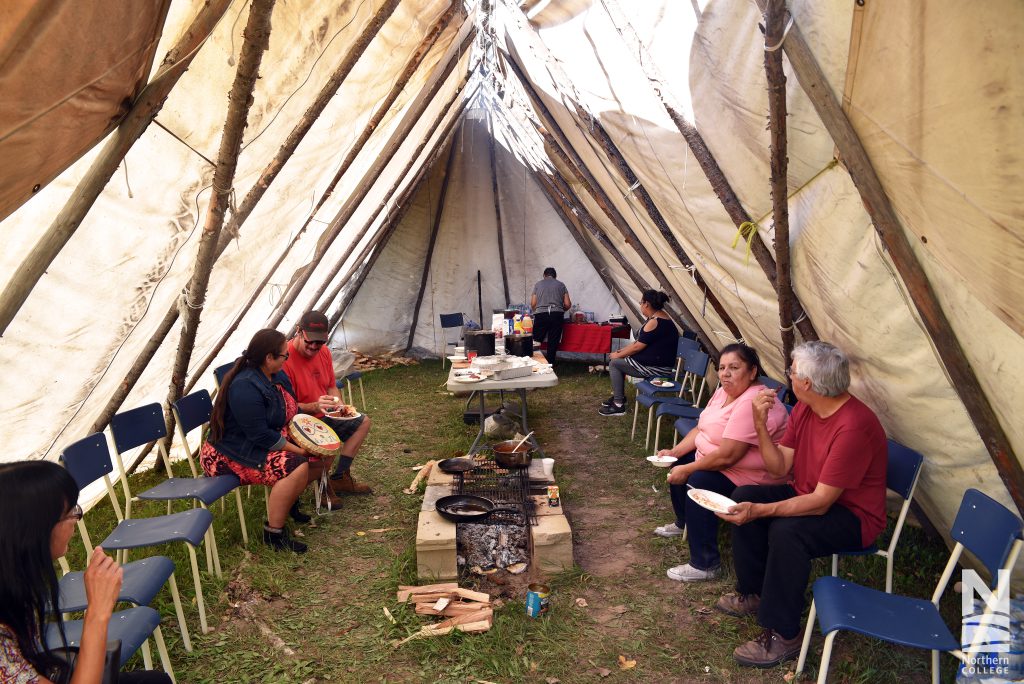
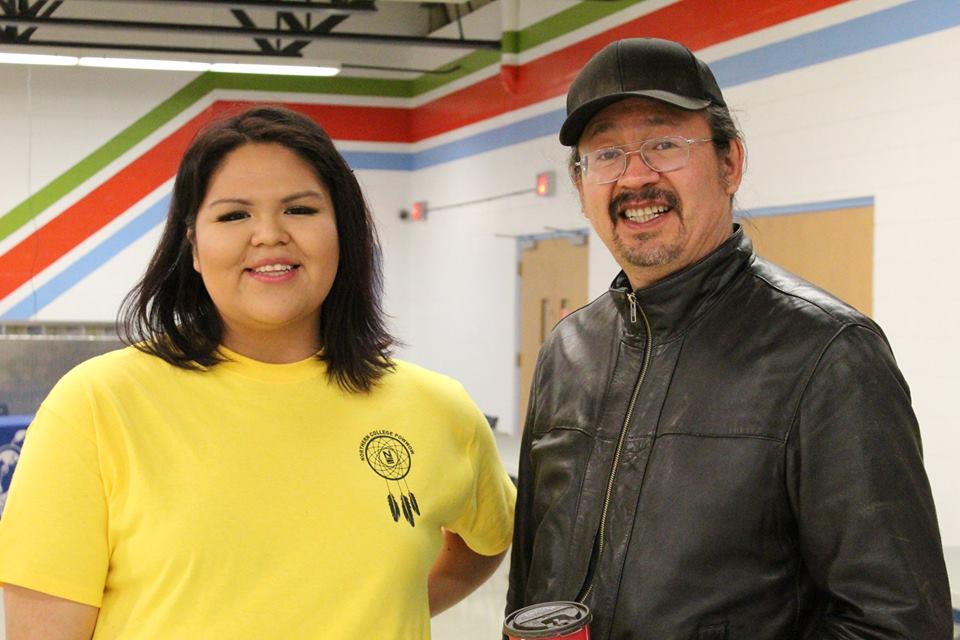
Financial Assistance for Other Opportunities
If you are an employee interested in taking a course, training, workshop, or attending a conference related to Indigenous cultural awareness that has a cost associated with it, financial assistance may be available to support you in your learning.
Please see the Professional Development Policy and Procedure [PDF, 541 KB] on NorAction for more information.
